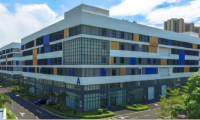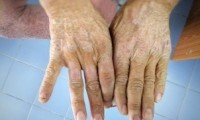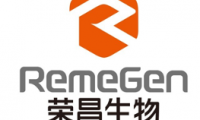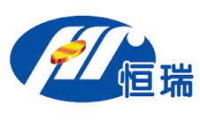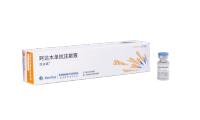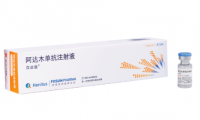-
EMA endorses AbbVie’s Skyrizi for ulcerative colitis
- Source: drugdu
- 111
- June 4, 2024
-
The Supplemental Applications of HANDAYUAN(adalimumab injection) for the New Indications Approved by the NMPA
- Source: drugdu
- 113
- May 24, 2024
-
TOFIDENCE™ (tocilizumab-bavi) tocilizumab biosimilar launched for sale in the U.S.
- Source: drugdu
- 73
- May 9, 2024
-
Chemomab touts study confirming CCL24 link to systemic sclerosis severity
- Source: drugdu
- 73
- April 20, 2024
-
RemeGen’s Telitacicept (RC18) Granted Fast Track Designation by United States FDA for Treatment of Primary Sjögren’s Syndrome
- Source: drugdu
- 130
- April 8, 2024
-
Hengrui’s Clinical Application for New Drug Indicated for Psoriasis Approved
- Source: drugdu
- 91
- April 2, 2024
-
FDA Approves Fresenius Kabi’s Tyenne, a Biosimilar of Actemra for the Treatment of Autoimmune Diseases
- Source: drugdu
- 171
- March 11, 2024
-
Henlius Adalimumab Biosimilar Received sNDA Acceptance Notification from the NMPA
- Source: drugdu
- 77
- March 6, 2024
-
Henlius Adalimumab Biosimilar Received sNDA Acceptance Notification from the NMPA
- Source: drugdu
- 138
- March 2, 2024
-
Sanofi, Denali Neuro Drug Fails Mid-Stage Trial in ALS; MS Study Is Continuing
- Source: drugdu
- 150
- February 26, 2024
your submission has already been received.
OK
Subscribe
Please enter a valid Email address!
Submit
The most relevant industry news & insight will be sent to you every two weeks.



